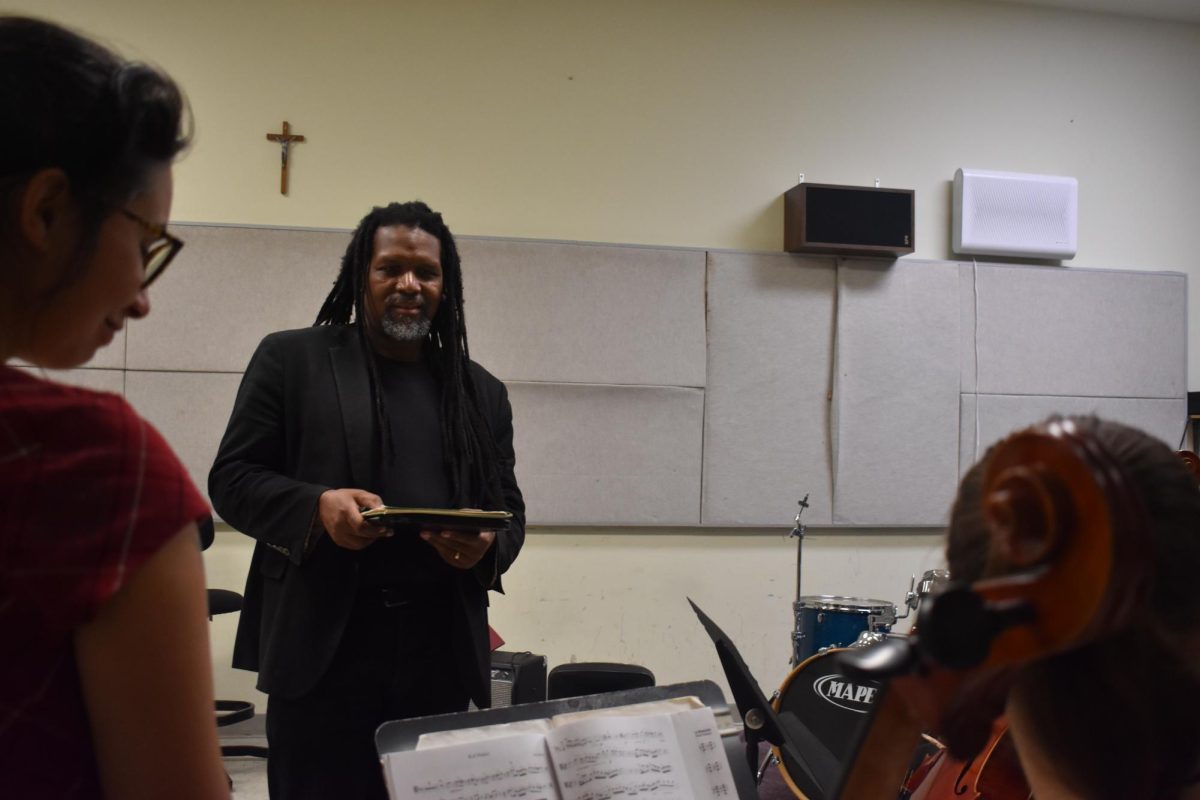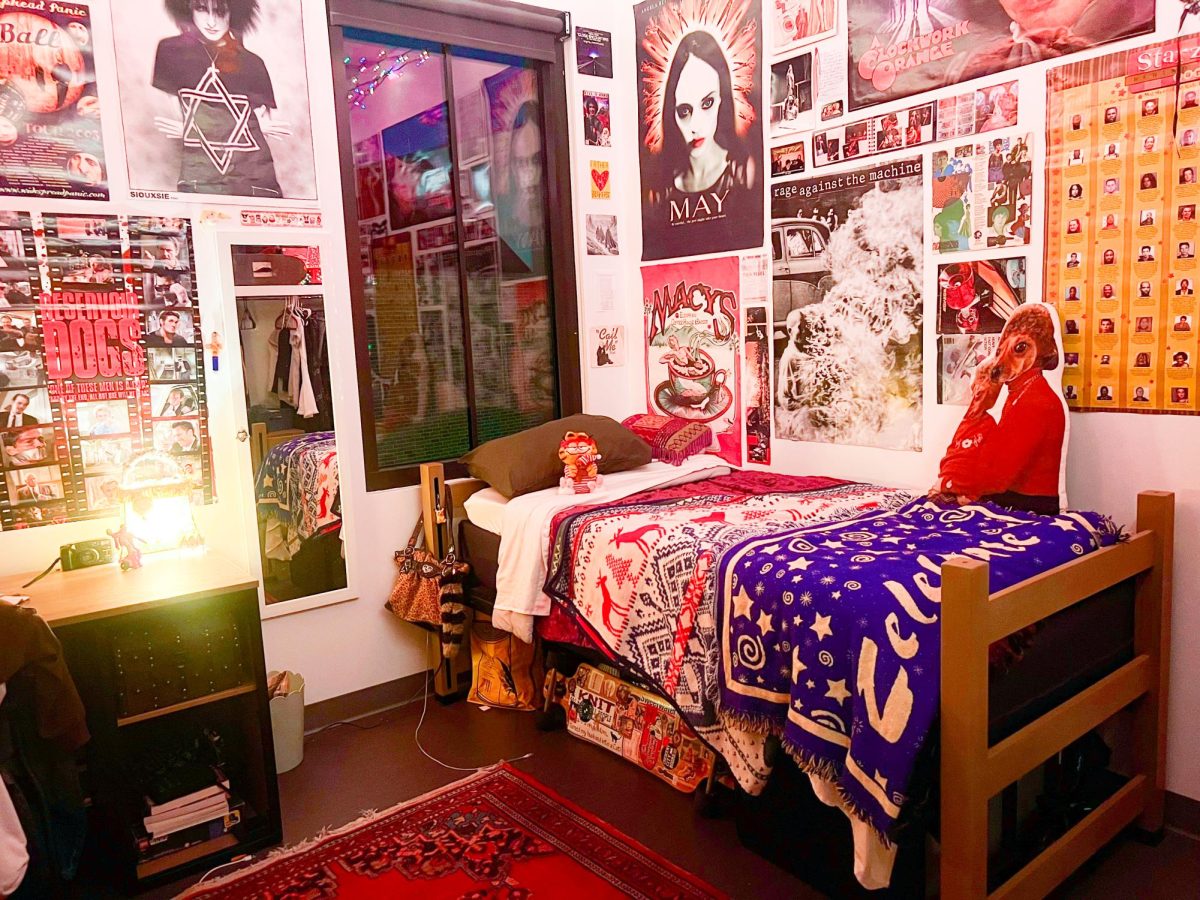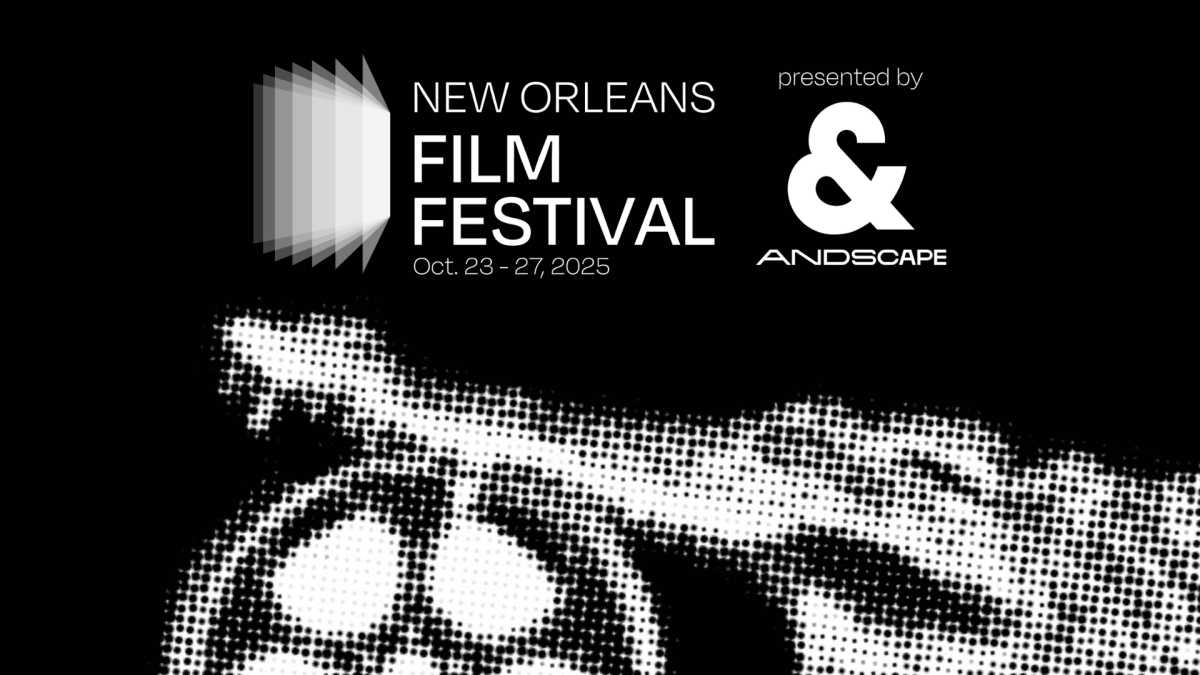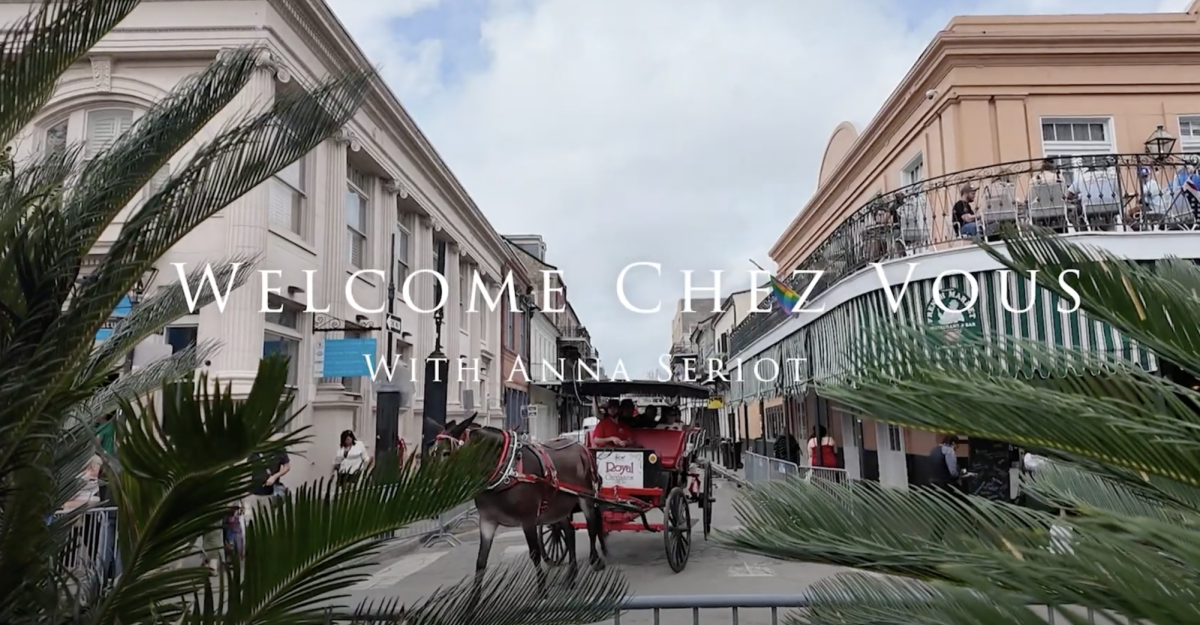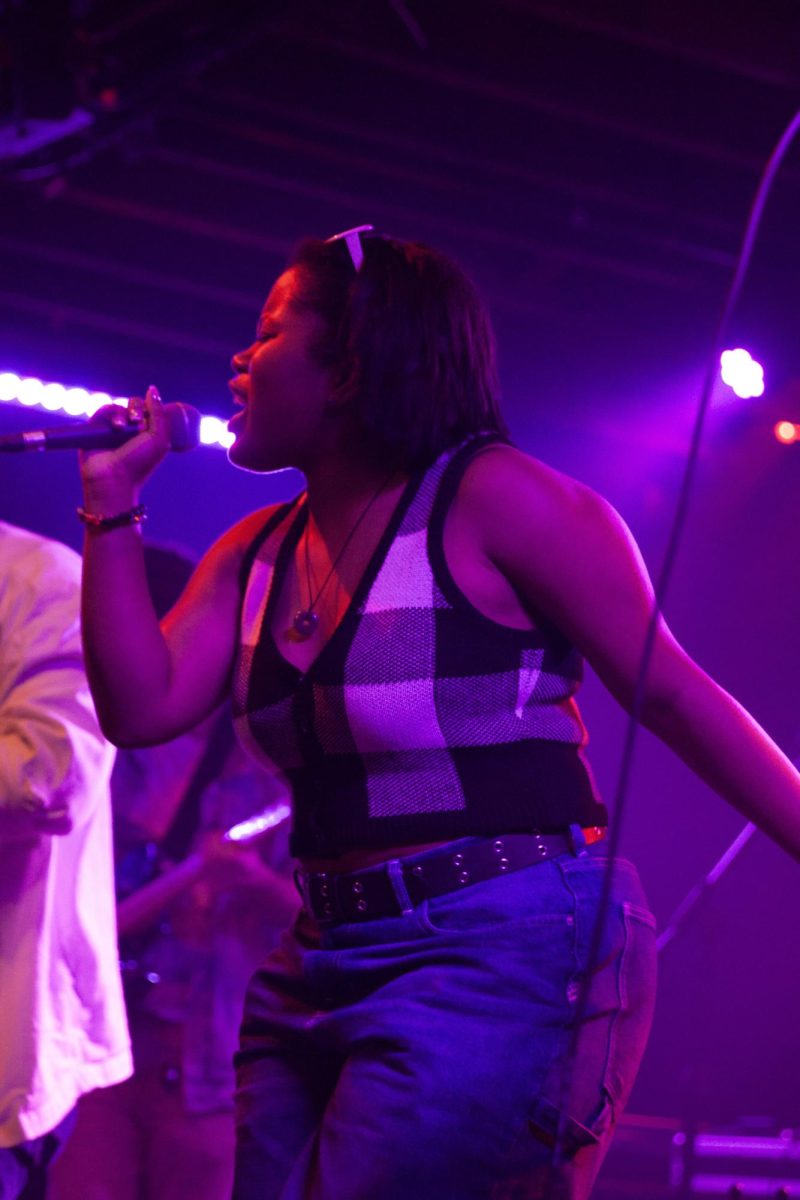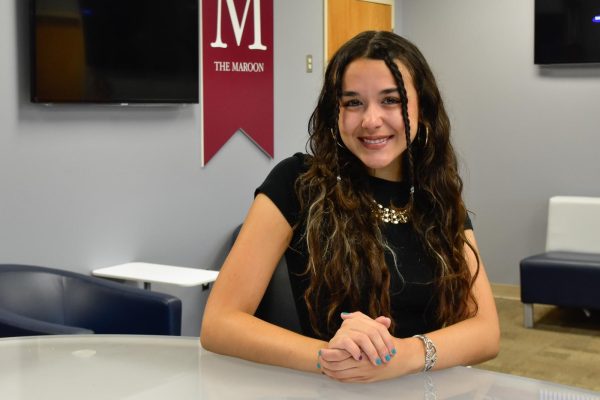Youth orchestra director and Loyola music professor Jean Montès wants to awaken the “unlimited potential” of his students.
“Teaching is an honor,” Montès said. “People trust me to guide them along their path. I like to put myself in their shoes and work along that path with them.”
Born and raised in Haiti, Montès serves as the director of the Greater New Orleans Youth Orchestra. He also conducts and teaches at Loyola.
Montès says one of his values as a music teacher is to create a safe and encouraging environment for his students. He said he nurtures them to feel safe so they can try things they wouldn’t do otherwise.
“I ask them to leave everything outside, to feel genuinely safe to try things and change. I try to provide a very nurturing and supportive environment so that students know they have my unconditional support,” he said.
Feeling safe is an important part of creating a productive learning environment, he said.
“Teachers bring in knowledge, but that knowledge is only effective when the students are able to receive the question and the challenges,” he said.
When he first visited New York, his parents sent him to visit The Juilliard School. There, he began to seriously consider music as a career possibility, he said. Though his cello teachers wanted him to pursue cello only, he had other interests and desires, he said.
“I was interested in music as a whole, from theory to composition to the history and the performance aspect, and that’s what led me to where I am,” he said.
His teachers from around the world forged an encouraging environment for him, which he said allowed him to grow.
“I was always passionate about sports and science, but musically I’ve always had teachers from many different parts of the world, and the common denominator growing up in Haiti was they were always very encouraging,” he said.
Montès likes to bring this same encouragement to the classroom in his own teaching.
“[Students] are each unique and have their own path, he said. “ I am very inspired by it. I like the work it takes to get to know my students enough, and push them with kindness.”
Kylie Benesh-Llop, an interactive design junior at Loyola, has been playing and learning cello with Montès for three years.
“He tells us it is a safe space to play and makes us feel comfortable in our abilities, not comparing ourselves to other musicians and makes sure we are making music for the right reasons,” Benesh-Llop said.
Montès said the best way he connects with his students is by creating an equal playing field environment.
“It is not a student versus teacher relationship— it is us together, embracing the instrument, from what I call a surviving stage to developing it into a performance,” he said.
He said his students have taught him how to be a teacher.
“I have learned everything I know from my students. It is very important to keep the whole concept of teaching as a partnership,” he said.
His student, music industry junior Amanda Duffin works with the youth orchestra and plays the cello in the Loyola Orchestra Symphony.
“His values align with ours,” she said, which are “connecting with students on an individual basis and remaining friendly and approachable while also professional.”
Montès and his students value connection, understanding, sensitivity, and presence, according to Duffin.
“He has a sensitivity to our playing and what we have going on outside the classroom,” Duffin said.
Empathy is an important part of Montès’s teaching, Duffin said.
“I have learned a lot from my students to become more sensitive about others in terms of what their needs are,” Montès said.
Sarah Montès, Monte’s wife, is the senior associate registrar at Tulane University, who also plays the cello.
“He has an incredibly empathetic way of teaching. He can put himself in the mind of a beginner. His ability to take something down to its simplest form but then produce something very complex with that person is something I admire about his teaching,” Sarah Montès said.
He cares about the progress of his students, he said, “If they don’t succeed, I don’t succeed.” His goal is to get his students to know he is always on their side, he said.
“I can tell he cares about us,” Benesg-Llop said, which is different from her experiences with past cello teachers.
His students describe him as a kind, present, and welcoming human, Duffin said.
“He treats everyone with openness and kindness, even if he has never met them before,” Benesh-Llop said.
Duffin has started to incorporate Montès’ music philosophy into her own practice.
“He is one of the most present people I have ever met– I’ve learned how to be present especially when I am playing,” Duffin said.
Montès is not just Duffin’s and Benesh-Llop’s teacher but he is also their friend, they both expressed.
“He cares about us like a friend would,” Benesh-Llop said.
Montès has a philosophic, spiritual, approach to his teaching, she said. He taught her that music is not just about the instrument and the player, Duffin said.
Montès believes there is always something more where the music comes from, Duffin said.
“There is the spirit and the soul, and then you, music, and the outside world, everything can be connected,” Duffin said. Montès taught Duffin that they all blend, she said.
“I ask them to leave everything outside, to feel genuinely safe to try things and change. I try to provide a very nurturing and supportive environment so that students know that they have my unconditional support,” Montès said.
Montès has taught her that it is okay when everything in life blends together. He encourages us to embrace it, Duffin said.
“My problems and life issues don’t have to be separate from my music, it’s okay if they all bleed together,” Duffiin said.
He has an uplifting and encouraging attitude in the classroom, according to Sarah Montès.
“He is very positive and has a very good heart, he is values oriented. He has a lot of integrity.
He is very honest, and extremely proud of where he is from and his origins. I think that is a beautiful thing,” Montès said.
Montès has a particular vision while conducting the orchestra, focusing on the collection’s sound, Duffin said.
He puts himself in the minds of his students, he said.
“He focuses on getting students to have a quality collective sound that’s unified and is trying to say the same thing,” Duffin said. She calls this “collective connection.”
Montès studies and observes his students to forge the best way to teach them.
“I like to observe them enough to give me the information I need to help them,” he said.
He focuses on individuality within the collective, by strengthening the individual sound he enriches the entire ensemble, Duffin said.
“He doesn’t focus on merely his vision of the piece, but of what his students are trying to say
He pushes us to express more and leaves room for our own individuality,” Duffin said.
Inclusion is a large part of Montès’s teaching, Benesh-Llop said.
“He includes everyone no matter what their level is, he makes it so that we can all play together in a beautiful and harmonious way,” Benesh-Llop said.
Duffin said he has a humane approach to his teaching.
“He is not just a teacher but he is a mentor.”
His presence has allowed his students to feel more present in their own music-making and in life, Duffin said.
“He makes me feel present,” Duffin said. “I always leave the classroom admiring the sky and the leaves.”


